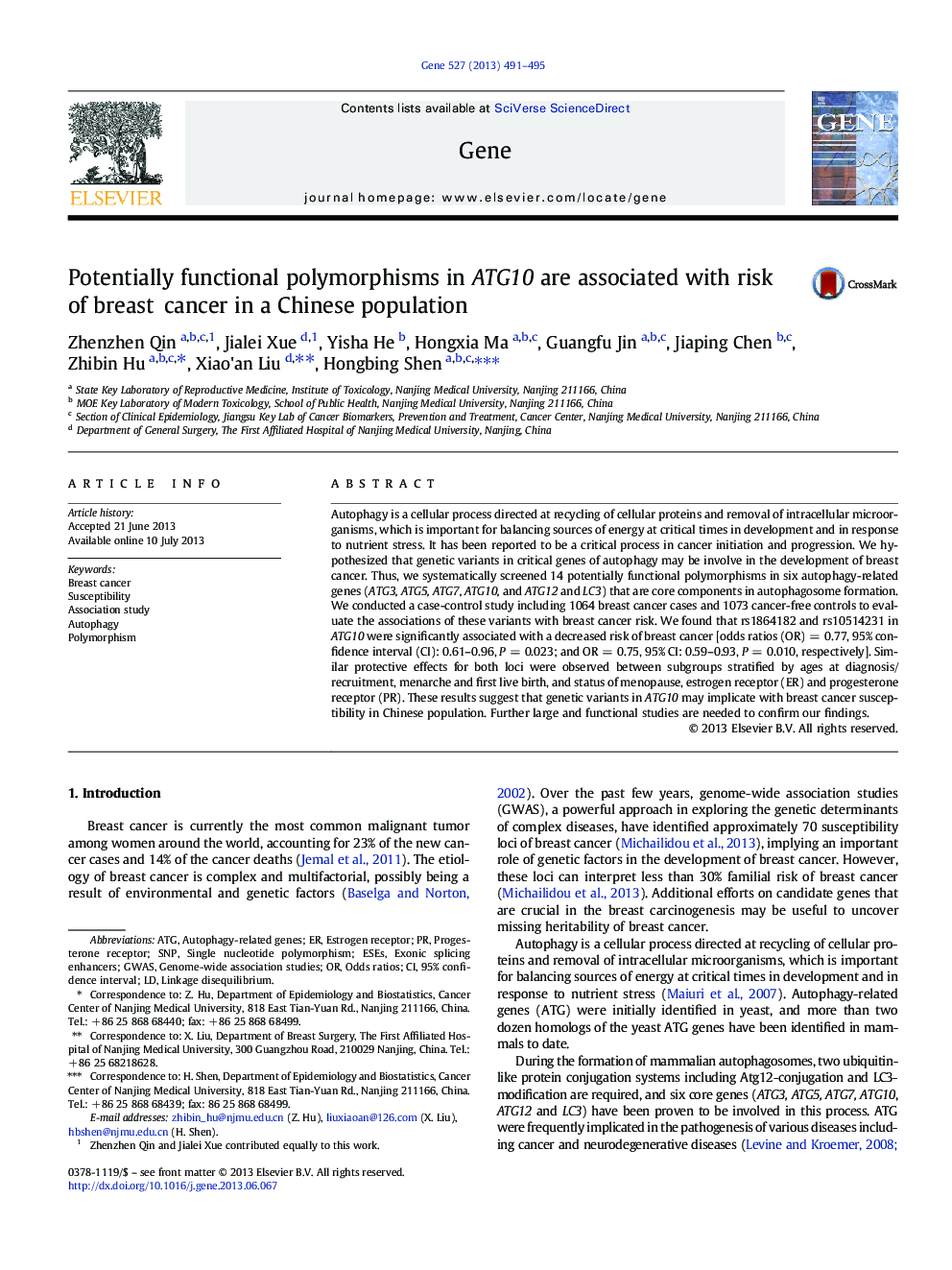| کد مقاله | کد نشریه | سال انتشار | مقاله انگلیسی | نسخه تمام متن |
|---|---|---|---|---|
| 2817006 | 1159961 | 2013 | 5 صفحه PDF | دانلود رایگان |

• We evaluated the associations of SNPs in ATG genes with breast cancer risk.
• Two SNPs in ATG10 were associated with a decreased risk of breast cancer.
• Genotypes of rs1864182 interact with age at the first live birth.
Autophagy is a cellular process directed at recycling of cellular proteins and removal of intracellular microorganisms, which is important for balancing sources of energy at critical times in development and in response to nutrient stress. It has been reported to be a critical process in cancer initiation and progression. We hypothesized that genetic variants in critical genes of autophagy may be involve in the development of breast cancer. Thus, we systematically screened 14 potentially functional polymorphisms in six autophagy-related genes (ATG3, ATG5, ATG7, ATG10, and ATG12 and LC3) that are core components in autophagosome formation. We conducted a case-control study including 1064 breast cancer cases and 1073 cancer-free controls to evaluate the associations of these variants with breast cancer risk. We found that rs1864182 and rs10514231 in ATG10 were significantly associated with a decreased risk of breast cancer [odds ratios (OR) = 0.77, 95% confidence interval (CI): 0.61–0.96, P = 0.023; and OR = 0.75, 95% CI: 0.59–0.93, P = 0.010, respectively]. Similar protective effects for both loci were observed between subgroups stratified by ages at diagnosis/recruitment, menarche and first live birth, and status of menopause, estrogen receptor (ER) and progesterone receptor (PR). These results suggest that genetic variants in ATG10 may implicate with breast cancer susceptibility in Chinese population. Further large and functional studies are needed to confirm our findings.
Journal: Gene - Volume 527, Issue 2, 25 September 2013, Pages 491–495